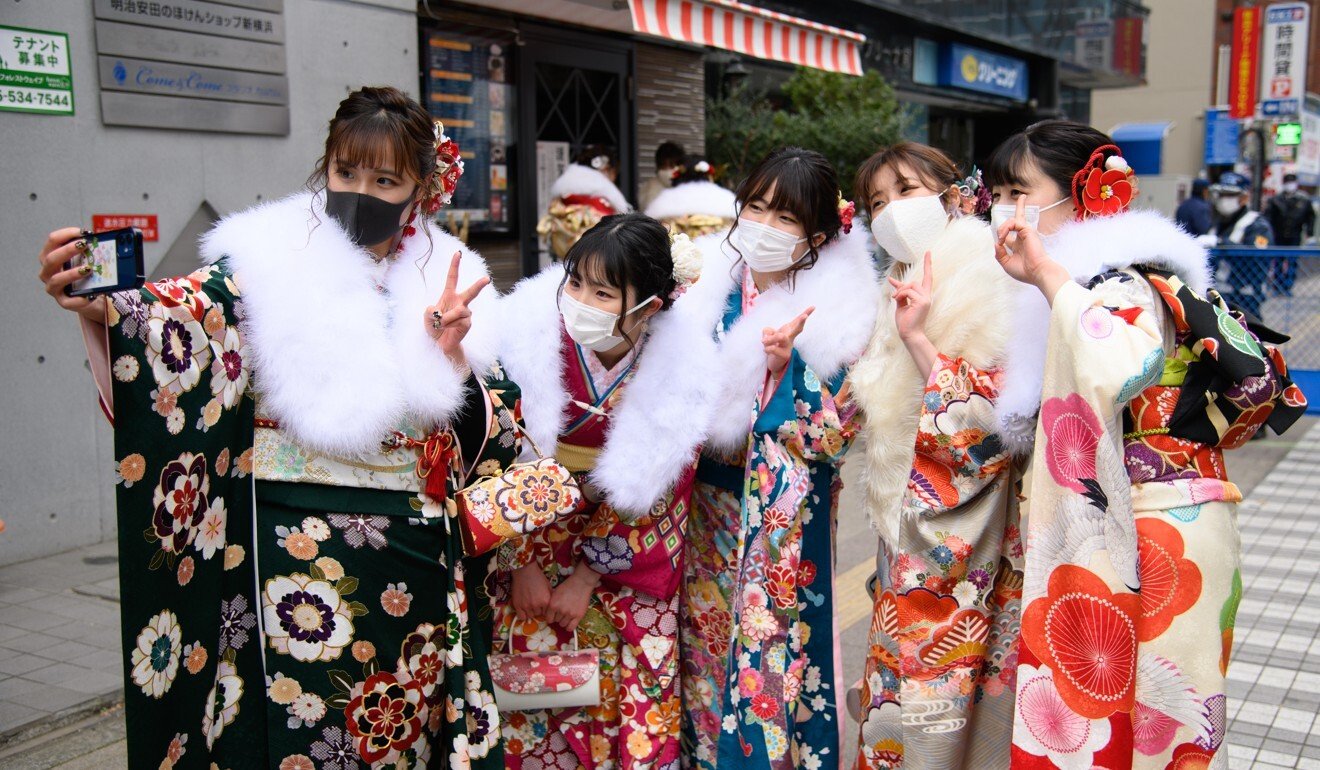
Japanese man adopts wife’s surname in bid to challenge nation’s entrenched sexism
- When Shuhei Matsuo Post and his wife decided to marry, neither wanted to lose their surnames. So they adopted each other’s names
- The 35-year-old businessman, who hopes his children will live in a gender-equal world, says he wants to challenge sexism in society by leading by example
For the first 28 years of his life, Shuhei Matsuo Post was ignorant about the impact of a patriarchal society on women and girls.
Then in 2014 he took a job in Hong Kong, where he met his American wife Tina Post, who opened his eyes on the way men have been socially conditioned to behave and see things a certain way.
“The more I learned about gender bias, the more I saw it in everyday life,” said Shu.
In Japan, #ActiveBystander campaign hits men in the conscience
He has since been challenging the gender stereotypes he learned growing up in Japan, which fares poorly on gender equality – ranking 121st out of 153 countries in the Global Gender Gap Report 2020.
“For example, the (necessity for) women-only train cars, the pornography in convenience stores, gender-specific pronouns, fuzoku (sex service), and so on,” he said. “Gender discrimination is everywhere. This discrimination harms us all.”
‘I TOOK HER NAME’
When the two decided to tie the knot in 2017, neither of them wanted to give up their birth names. They believed that surnames were an integral part of personal and family identities. So they decided they would each adopt the other’s surnames.
Tina adopted the non-hyphenated double-barrelled name first, then Shu did the same. Going double-barrel gave both the opportunity to retain their birth names and acknowledge their new marital status.
It took Tina all of 15 minutes to get her name changed from Tina Post to Tina Matsuo Post in the US, but it took her husband eight months to get his name legally changed from Shuhei Matsuo to Shuhei Matsuo Post in Japan.
Women in Japan fight for right to retain their names
Japanese law currently requires that married couples take one of the spouses’ family names. In marriages between a Japanese national and a foreign national, however, the law does not apply.
If you are a Japanese male-female couple getting married, there are no in-between options like hyphenating your last names, keeping your family name as your middle name or combining both of your last names into a new name.
Despite the option for men to take their wife’s surname, 96 per cent of Japanese women assume their husband’s name.

Shu was unprepared for the legwork that followed – updating his passport, driving licence, credit card, airline mileage card, email account, business card, and all the administrative burdens that rarely fall upon the man in many societies.
Eventually, Shu’s activity logs turned into a self-published book, titled I Took Her Name, which was released in December.
Currently on seven months of paternity leave, he is now using social media to get his message out and telling his story across multiple media platforms as a male feminist, but Tina does not think that means he is representing women or speaking on their behalf.
“I don’t really think that he’s representing women, I feel more that he’s representing men and showing that it’s possible for us to be in it together,” she said. “He’s showing that here are some of the flawed thinking that he was a part of.”
Tina, who teaches gender and linguistics to high school students, says they are not perfect feminists but they work hard on their critical thinking and open-mindedness.

LEADING BY EXAMPLE
Now that Shu has gained an understanding of how women are often devalued in society through entrenched ways of thinking, he says there is no going back.
Driven by purpose, Shu says heterosexual men must begin to acknowledge the privileges they enjoy. He admits it is not easy to get Japan’s men to catch up with his example, especially the older generation with outdated gender expectations.
“It’s impossible to call out every sexist behaviour you see. I sometimes miss the opportunity to educate others. Start with whatever you’re comfortable with, with your circle of friends or family members,” he said.
“Japanese society is unique, and discrimination against women is tolerated and accepted as part of daily life,” he said. “Two things men can do to help fix this is to do more housework and take extended childcare leave. Gender equality benefits everyone, men and women.”
How Covid-19 is driving more Japanese men to suicide
Shu thinks men are less likely than women to seek support for mental health issues, and they are at much higher risk of dying by suicide, because traditional norms of masculinity prevents them from asking for help.
In 2019, men accounted for 69.8 per cent of all suicides in Japan. Women are more likely to be diagnosed with anxiety and depression, and studies suggest that it may be linked to the oppression they face on a regular basis.
I imagine my children or grandchildren laughing about the time when gender inequality existed because their world will be much more equal
While sexism exists across many aspects of life, Shu thinks gender equality starts at home and families are at the front line.
“I truly believe in leading by example,” Shu said. “I know I’m just one person but I can make a difference in my community. When I recently heard that my colleague, who is becoming a father next month, saw what I did and decided to take time off to look after his newborn, that makes me happy.”
Shu says by talking to the younger generation about pushing for equality between the sexes, you are setting them up to lead the way for a better future for all.
“I want to spend more of my time educating young adults than dealing with stubborn old men. High school and college students today have the education I didn’t get. That’s why I have hope for the future,” he said.
“I imagine my children or grandchildren laughing about the time when gender inequality existed because their world will be much more equal,” he said. “I really hope that day will come.”


